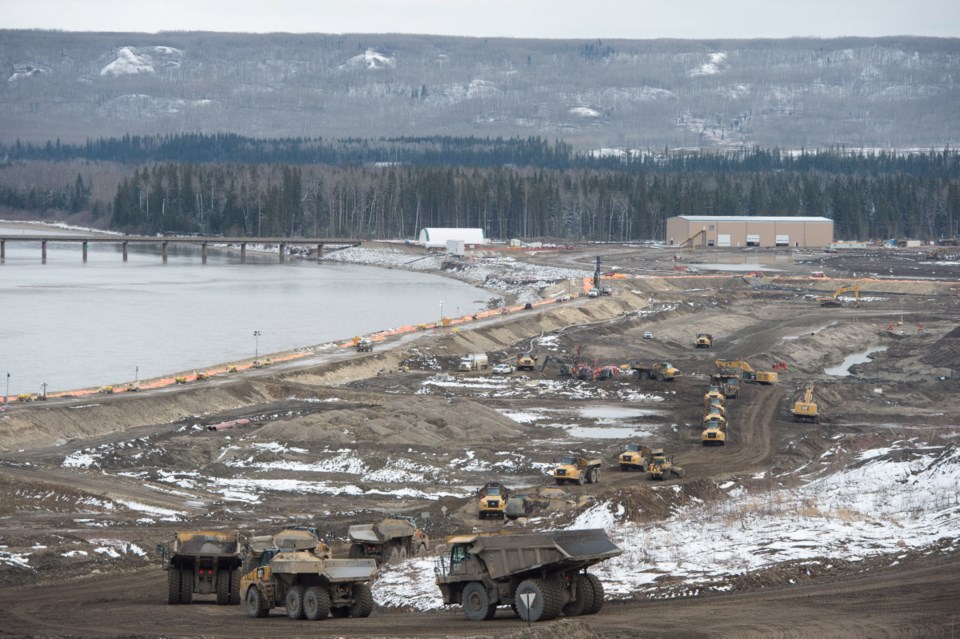The head of an expert panel reviewing the economic viability of the $8.8-billion Site C dam says its final report may not have answers to the questions the province is looking for.
David Morton, chairman of the B.C. Utilities Commission’s Site C inquiry panel said it’s asking B.C. Hydro to respond to 73 questions by Oct. 4.
The province tasked the panel with determining how much it would cost B.C. Hydro ratepayers to stop, pause or continue construction on the hydroelectric dam.
“We acknowledge there’s a lot of questions and we acknowledge it is a lot of work for B.C. Hydro to answer. They have indicated they will make their best efforts to answer them,” Morton said.
“We’re hopeful that we get answers to the questions that are absolutely critical, but if we don’t, we’ll just have to evaluate at the time and work around that.”
In its preliminary report, released Wednesday, the panel said the project will have cost
$2.1 billion by the end of this year.
Construction appears on track for completion in 2024, but it’s too early to say if that will remain the case, the panel found.
It doesn’t have enough information about current spending, outstanding claims and the contingency fund to say if the $1.8 billion already spent means it’s on budget.
The most important variable is whether or not B.C. Hydro can meet its September 2019 milestone of diverting the Peace River. If the one-month window of lowest river flow is missed, the diversion will be delayed one year.
“That is a critical piece that needs to be done, otherwise there is a higher probability the project will go over budget,” Morton said.
“Of course, that can only be answered in September 2019. But we’re hopeful B.C. Hydro will be able to provide us with more information, to provide us with some confidence that they will meet that date.”
The panel also found B.C. Hydro failed to adequately consider geothermal, biomass, solar and battery storage options as alternative energy sources.
Energy Minister Michelle Mungall said Thursday that cabinet is watching the BCUC process closely. “Whatever the B.C. Utilities Commission advises at the end of the day, this government does have a tough decision to make,” Mungall said.
The expert panel would have been given more than the tight three-month schedule to complete such a report, if the former Liberal government had ordered the expert review earlier in the process, she said.
“We respect that there are a lot of people whose lives are on hold,” she said.
“We want to do this in a timely manner for all British Columbians.”
Liberal Peace River South MLA Mike Bernier chided Mungall in question period Thursday, saying 2,600 workers’ livelihoods hang in the balance.
There have already been decades of studies and consultations conducted and another report is unnecessary, he said.
“What the NDP did, putting this to review, it’s left so much uncertainty for the workers on the project,” Bernier said.
“When it comes down to it, we have a project that will bring certainty to the province of British Columbia for clean energy for generations to come. We need to move on an get it completed.”
He pointed to “huge cost overruns” identified in the report, if the project is delayed.
Site C would flood about 5,500 hectares of land along the Peace River in northeast B.C., creating an 83-kilometre-long reservoir and providing enough power for up to 450,000 homes a year.
The project was initiated to meet future energy demands in the province, but has come under fire because of its high price tag, plus impacts on First Nations rights, agricultural land and the environment.
Work is continuing on the site during the review.
The final review, due Nov. 1, will include public input.
[email protected]



